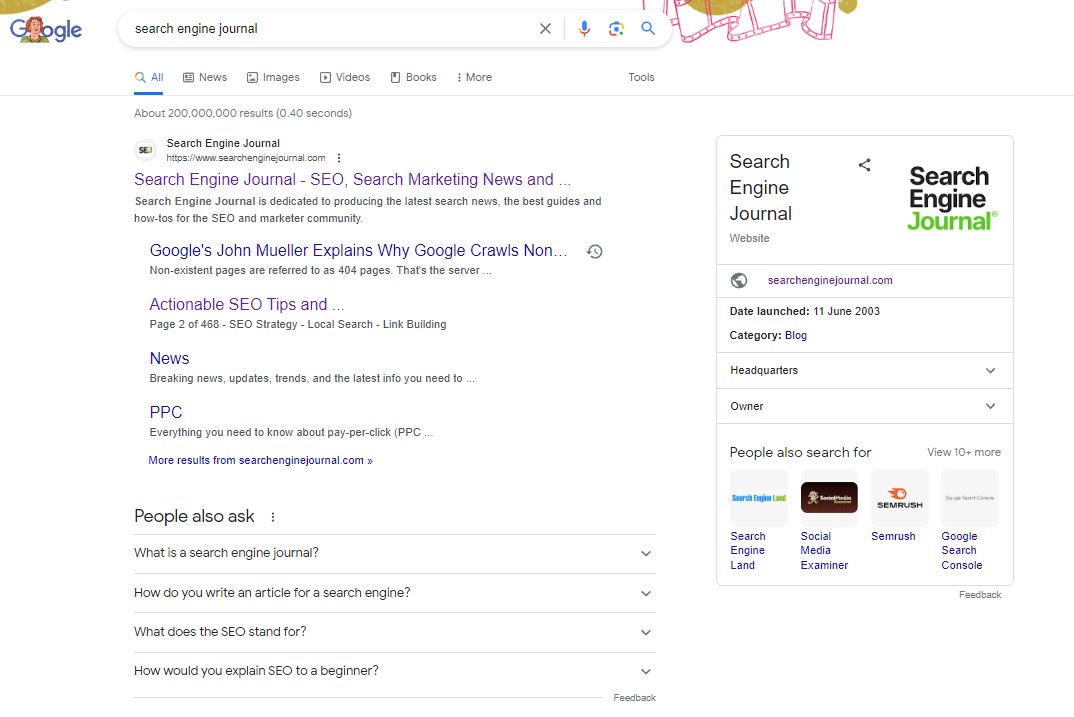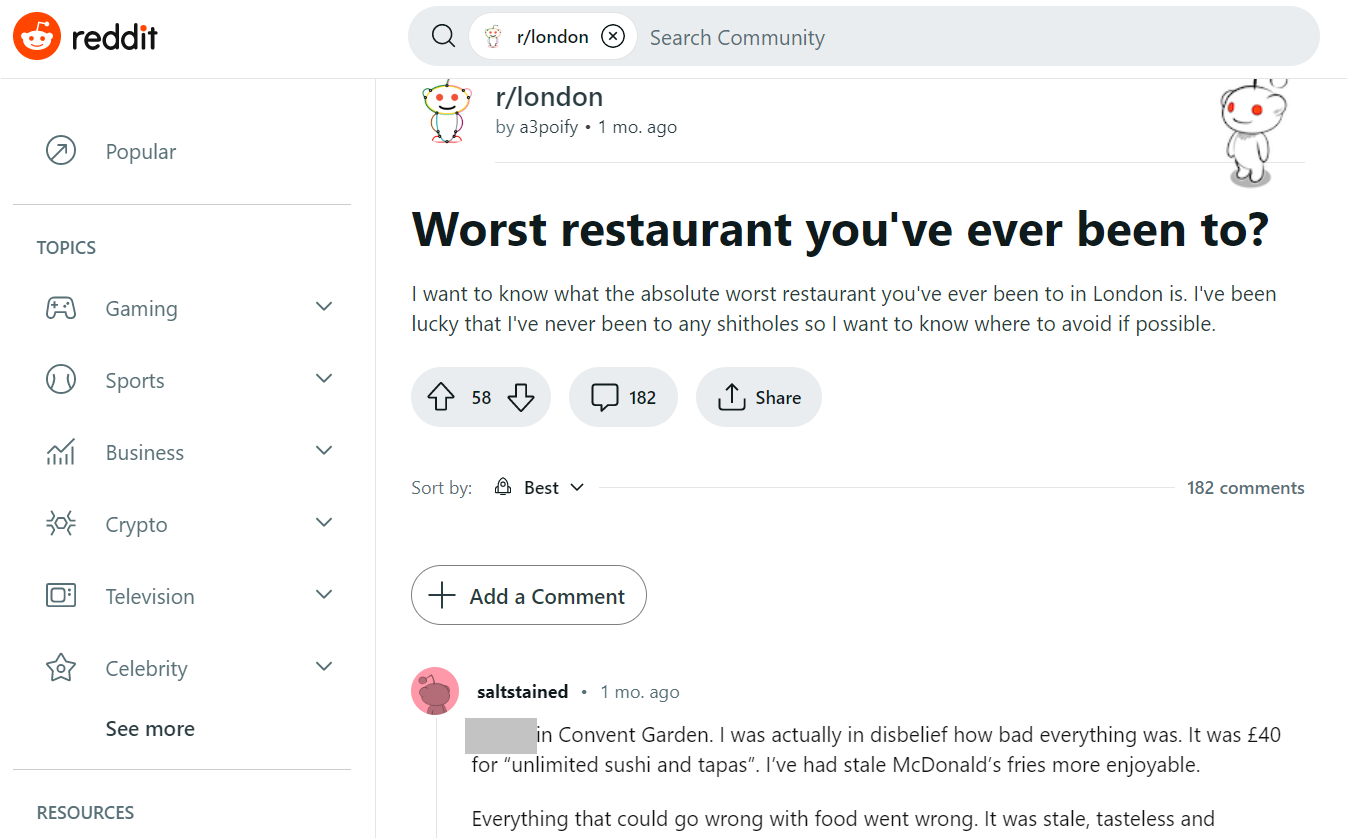When you hear the phrase “reputation management” your mind might conjure ideas of crisis talks and PR executives looking flustered.
You might imagine boardrooms of busy lawyers and a stressed CEO.
In reality, good reputation management starts long before – and hopefully in lieu of – any PR nightmares.
Reputation management is about making sure your business is highly regarded within its industry by its customers and the general public.
A good reputation management strategy will extend to both the online and offline, but for the sake of this guide, we’ll be focusing on the ways that small businesses can protect and bolster their image online.
Who Should Have A Reputation Management Strategy?
It might feel like a reputation management strategy is only needed by large, public-facing companies. This just isn’t the case.
Any company can be the subject of negative reviews, competitor takedowns, and plain, old misunderstandings. You don’t need to be in a particularly litigious sector or have controversial staff.
Online reputation management is about enabling your business to own as much of the space where it’s being talked about as possible. It enables you to steer conversations about your brand. You can identify and rectify any brewing issues.
Customers
If you have customers, whether B2B or B2C, you are likely subject to reviews. As such, it is really important that you have a reputation management plan in place to deal with any negative reviews or press.
Competitors
If you have particularly aggressive competitors, you might be subject to negative attacks on social media or through reviews.
Just because you haven’t had any trouble with your current competitors doesn’t mean you won’t in the future.
Having a plan in place for how to deal with any negative attacks if they arise can save you a lot of trouble down the line.
Employees
As much as you try to value and honor your employees, sometimes working relationships can sour. Disgruntled employees can be very damaging to a brand.
It’s important that, if you work with staff or contractors, you fully understand the impact they could have on your business’s reputation.
Where Online Should You Focus Your Strategy?
It will not just be the obvious places like social media that you need to consider in your reputation management. There are many places online where both positive and negative brand influences can spread.
Search Engines
Search engines are often the first port of call when a potential consumer or journalist is trying o find out more about your organization.
When your brand is searched for, your website is likely to only take up one or two positions on the search engine results pages (SERPs). There will be many other spaces on the front page of the results where other mentions of your brand will be ranking.
These can be purely informational, like directories, or they could be more influential, like press articles or pages about your brand on competitors’ sites.
Review Sites
There are plenty of sites online that provide consumers with places to share their experiences of your brand, both positive and negative.
These might be industry-specific, as part of marketplaces like Amazon and eBay, or more general, like Trustpilot and Yelp.
Search Engine Profiles
Beyond the pages that mention your brand that the search engines are ranking, there are also features like Bing Places and Google Business Profile that have information about your business and allow reviews to be left.
These profiles may not even have been set up by you, they may have been created by the search engines themselves based on data they have taken from other trusted sources.
Social Media
Your brand is likely being talked about on social media sites if you are a B2C business – even if you don’t have a presence on the platform.
Your customers might be speaking about you and not tagging you.
Social media is a great place to get a sense of what the general sentiment around your brand is, but remember that opinions move quickly on social.
Forums
Platforms like Reddit are almost social media lite.
They allow users to discuss brands and experiences with products and services, all anonymously.
More specialist forums specific to your industry will likely have entire boards dedicated to particular issues with brands and their services.
Why Is Reputation Management Important?
Many potential customers go online to find out more about a business before they engage with it. They may be looking specifically for others’ complaints and problems – or they might be looking for information about your opening hours.
Regardless, if they search your brand and see negative reviews and comments, it may be the difference between winning that new customer and losing them.
Similarly, if a current customer comes across stories of problems with your brand whilst on a forum or social media platform, it will likely color their own experiences with you.
A PR crisis is an obvious reason to care about your reputation, but by the time the media is running with a story, it’s often too late to limit the damage.
When Should You Consider A Reputation Management Strategy?
You need to work on your plan to proactively protect and build your brand’s reputation now. The more you can help to influence the conversations around your company now, the easier it is to present a positive image in the long term.
This means monitoring your brand’s mentions online – not just waiting to be alerted via a social media tag, but carrying out a full audit now and regularly monitoring mentions going forwards.
You should assign a member of your team who can carry out regular checks and also empower them with the right tools to automate it where possible.
This doesn’t have to be expensive; Google Alerts allows brands to select terms they want to be alerted to when they are used online. As a minimum, set these up for your brand name and the names of any well-known people in your company.
How To Audit Your Reputation
Your first step should be to carry out an audit of your brand’s reputation to find out what is being said about you.
Search For Your Brand
Go to the major search engines for your country and search for your brand. See what comes up in the search results.
How much of the first page of the search results are webpages, social media profiles, and review pages that your business controls? The goal is to have as much of that front page of your brand’s search results controlled by your company as possible.
Carrying this out for Search Engine Journal on Google shows the company’s own website, a Google Knowledge Graph entry, and a People Also Ask section.
Knowledge Graph
The Google Knowledge Graph is something that your business cannot control directly, but can influence.
If, when looking for your brand, you notice that yours is incorrect or missing entirely, I’d recommend reviewing Dixon Jones’ excellent guide on the Knowledge Graph here and Aleh Barysevich’s guide here.
People Also Ask
The People Also Ask section on Google SERPs is a great way of quickly identifying any negative sentiment about your brand.
For example, if your brand search reveals a People Also Ask section that contains questions like “Is [company] a scam?” or “Is [company] expensive?” you know that there is potentially some negative sentiment surrounding your brand.
If these negative People Also Ask questions are appearing on your brand search, it is imperative that you see what the SERPs or those questions look like. If they are not positive, you need to try to rank your own content as an answer to those questions.
This will give you the opportunity to give a more favorable answer than is currently being ranked.
Be Brave And Look For The Negative Press
Search for your brand plus “reviews/scam/alternatives/pricing” and look at what is ranking in the SERPs. Also, check if that changes the People Also Ask questions to something more divisive.
You may well uncover some reviews or forums that you aren’t even aware of through these sorts of searches, but they will help you identify if there is more negative content about your brand out there online.
Search Engine Profiles
When searching on Google you may notice your Business Profile appear. This is something that you can directly control.
You are able to correct any misinformation on factual items like opening times and location, but you can also flag inappropriate reviews and answer questions.
It’s very important to keep on top of these business profiles and make sure that you are answering any questions that are asked through them so that the general public, who can also answer them, doesn’t give misleading or unfavorable responses.
Bing Places and Apple Maps are other common business profiles that you may have set up and forgotten about, or that were set up automatically. Make sure you are checking these regularly.
Social Media
Go to each of the main social media platforms that are popular in the countries where your customers are located. This might not just be the platforms you have a profile on.
A search of your brand will help you to identify if you are already being spoken about.
Look at competitors’ accounts, too, and see if they are receiving mentions with your brand included. You may notice favorable or unfavorable comparisons, or recommendations to switch to or from your business.
Reddit And Forums
Reddit is partially a forum and partially a social media platform.
Don’t forget about it when you are auditing your online reputation. Try to be a part of the communities (subreddits) that discuss your industry, or if you are a local business, review what’s being said on your town or city’s subreddit.
You might not be named directly but alluded to as part of these local conversations. For instance, “the shop at the end of the road on King Street” and therefore might not find your business being talked about through a brand search only.
In a similar way, make sure you are keeping up with what is being discussed on industry or location-relevant forums online.
Look At Comparison Pages
Whilst you are reviewing what the SERPs say about your brand, you might notice a few of your competitors are comparing your brand with theirs. Comparison pages are not that uncommon, especially in service software and technology industries.
If the comparisons are inaccurate or unjust, you may wish to contact your competitor and have them rectify the information.
If they are outright untrue and your competitor is not willing to correct the misinformation, you may need to seek legal advice.
Own A Presence Wherever You Can Where You Are Being Talked About
A very proactive approach to reputation management for smaller businesses is simply making sure you own a profile wherever your business is likely to be talked about. For example, claim social media profiles on the main platforms where you are being discussed.
This gives you a central place to monitor mentions and also correct misinformation. It will also help you to dominate the first page of the organic SERPs on Google and Bing.
Subscribe for Daily Search Insights
AI, PPC, and digital marketing news distilled to fuel success. Join the other 75k marketers!
These high-authority social media sites’ brand-owned profiles often rank highly for relevant brand searches.
If you can claim or set up a profile on your relevant review, directory, and comparison sites, you will be able to respond to negative comments and reviews.
You can also answer questions asked about your company that might otherwise be answered by competitors or the public.
Deal Well With Reviews
Something that sounds simple but often doesn’t play out as intended is taking the high road with unfavorable reviews.
It can be hard to respond politely when you receive a review from a disgruntled customer complaining that the music in your café was too loud, or there were too many families at your play center.
It’s rare that a company biting back at negative reviews will come out of the fight unscathed.
Respond Positively To Unfavorable Reviews!
Have a process in place to deal with negative reviews. Assign one or two people who are trusted to respond well.
They will likely need to be fairly senior in the company so that they can objectively investigate the complaint but also offer remediation if necessary.
Have a complaints and escalation process defined and available to your customers. This is to give them an avenue to voice their concerns before it gets as far as a negative review.
Always respond in a way that is polite and reassuring. Remember, you are not just replying to the reviewer but to everyone who reads that review going forwards.
Own up to your company’s mistakes, offer an effective solution, and remain calm!
There may be instances where reviews are entirely unfair or not grounded in fact. You can be honest in your responses to these reviews but remember to be polite and understanding.
A good test is to consider, “Would I say this to them on stage in front of 100 people?”
Know When A Review Goes Against A Platform’s Guidelines
Most review and comparison sites have rules around the type of reviews they will allow on the site. Make yourself familiar with what these are.
This way, if you do receive an untrue or inappropriate review you may be able to flag it for removal.
Respond Positively To Favorable Reviews
Another way to project a strong brand image is to respond to your positive reviews too.
Take the time to thank reviewers and pick out aspects of their review that meant a lot to you and your company.
This will likely help them to remain loyal customers, but will also encourage others to leave positive reviews too.
Have A Crisis Strategy In Place
Reputation management sometimes means dealing with sudden, unexpected negativity. A complaint might make it into the local newspaper, or an unflattering comment might go viral online.
It is always better to plan ahead and know what steps you would take in the event of a PR crisis, rather than waiting until it happens.
At the very least, you may need to consider:
- Who would be authorized to comment to the media – Choose someone senior, respectful, and able to cope with being interviewed. Make sure that they are given some media training and are well-versed with the company’s employment and health and safety policies.
- Devise a robust complaints escalation process – This should include who takes ownership of investigating complaints and who is responsible for responding to them.
- Have some pre-approved responses or tone of voice guides to help.
- Communicate to the whole team what they are or aren’t allowed to say to the media and what to do if they receive a complaint.
Be Proactive In Presenting A Positive Image
Finally, it’s worth mentioning that the best way a small business can manage its reputation is to work at gaining a positive one.
Support Local Causes
You can get a lot of good press, and deservedly so, by investing in your local community.
Sponsoring a kids’ sports team or working with charities in your area can be beneficial in showing your potential consumers what you stand for and how much you care.
Be Politically And Culturally Aware
Seemingly innocuous comments online from your company, or even what your corporate social accounts re-share or like, can be seen as an endorsement of a particular political or social view.
Be mindful of this when using the internet to engage with your audience.
What might seem like a well-timed joke or topical comment could backfire massively. Make sure your digital marketing team is sensitive and caring in their approach to engagement.
Have Robust Employee Social Media Guides In Place
Your employees may be seen as an extension of your brand. Not only can they be your biggest advocates they also can be seen as speaking on behalf of the company.
You may want to look at social media policies and guidelines to help your employees know what is and isn’t acceptable for them to say, either formally or informally, about your brand.
Make sure to do this in conjunction with local legal advice to make sure you aren’t overstepping your boundaries as an employer.
Conclusion
The simplest way for your small business to manage your reputation is to be proactive and not reactive.
Plan what to do in an emergency and work hard to ensure that never comes about.
Think of everywhere your customers and potential customers might be talking about you, and keep up with those conversations.
Take time to really listen to complaints and respond to them in a way that turns detractors into supporters.
More resources:
- SEO & Reputation Management: An In-Depth Guide
- What Is Online Reputation Management (ORM)?
- How To Dominate Social Media Marketing: A Complete Strategy Guide
Featured Image: Olivier Le Moal/Shutterstock




